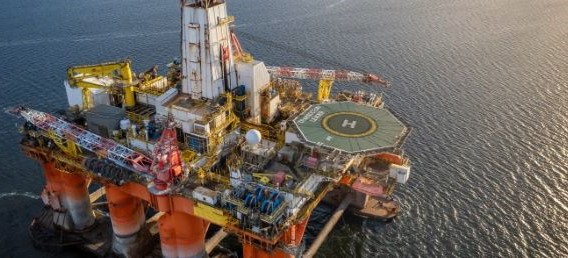(3 Minutes Read)
Shell has recently announced a USD400 million (about N$7.5 billion) write-down concerning its oil discovery in the PEL39 block in the Orange Basin off the coast of Namibia, stirring some concern in the country’s oil and gas industry. However, Industry experts say there’s no need for panic or to interpret this as Shell abandoning its Namibian project.
In the oil and gas industry, a “write down” refers to an accounting practice where a company reduces the value of an asset on its balance sheet to reflect its current market value. This adjustment is made when the estimated recoverable oil or gas from a well or project is deemed significantly lower than the initial cost due to factors like lower commodity prices, geological issues or unexpected production declines. Essentially, it means acknowledging a loss in asset value on the company’s books.
This write-down is an accounting adjustment, most likely made as Shell prepares to release its fourth-quarter results on 30 January 2025. It informs shareholders that the costs incurred on this particular discovery will not be recovered through commercial production at this time. Shell’s announcement stems from the current assessment that the oil and gas discovered in PEL39 “cannot currently be confirmed for commercial development.” However, this does not mean the end of Shell’s project in Namibia.
Shell, along with its partners, is likely to continue with the interpretation of data and drill more appraisal wells. The situation could change with new findings or technological advancements that might make development and production feasible in the future.
When the market value of an oil or gas asset falls below its book value, a write-down is necessary to accurately represent the asset’s true worth. This adjustment impacts financial statements by appearing as an expense on the income statement, thus reducing the company’s reported profits. Reasons for such write-downs include geological challenges, low oil or gas prices and exploration failures. Accounting standards require companies to regularly assess their assets for impairment and record write-downs when necessary. Specifically, regarding Shell’s case in Namibia, an initial estimate by Wood Mackenzie of Shell’s discoveries was 3 billion barrels of oil in October 2023, but this was later downgraded to 300 million barrels of oil by February 2024, which might have also contributed the write-down. In the oil and gas industry, the threshold for a discovery to be considered commercially viable can vary significantly depending on several factors including costs of development, geological formation and difficulty in extraction and oil price.
Typically, discoveries need to contain at least several hundred million barrels of oil to be economically viable, but this can rise to over a billion barrels for offshore projects due to higher development costs. The geological challenges and operational conditions, coupled with the reduction of the estimate from 3 billion barrels of oil to 300 million barrels of oil likely prompted the financial adjustment.
Read Also:
https://trendsnafrica.com/five-oil-drilling-projects-planned-for-namibia-in-2024/
Write-downs like these are standard in the exploration phase of oil and gas projects worldwide. It’s simply a reflection that not every discovery will lead directly to profitable production. It’s a part of managing expectations and financial planning rather than a sign of failure retreat or abandonment of a project. For instance, Shell also announced a USD 300 million write-down for a project in Colombia, indicating this practice is not unique to Namibia’s project.
Namibia’s potential as an oil-producing nation remains intact, with other significant discoveries such as those by Total Energies and Galp showing promise.





